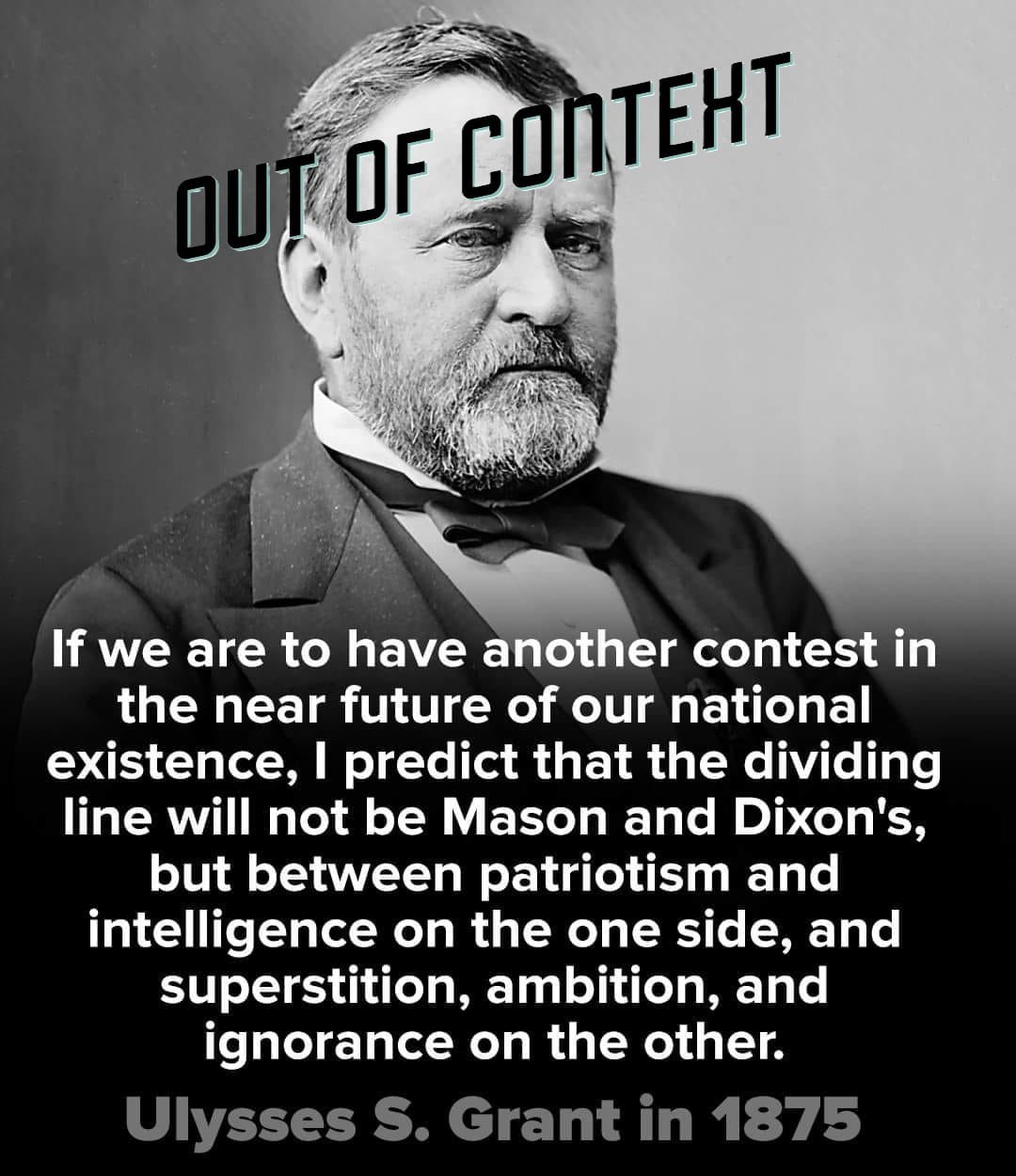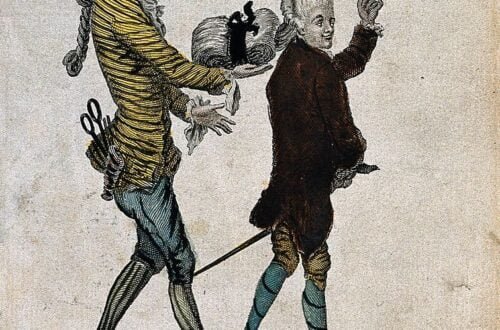
Ulysses S. Grant vs. Catholics
People love to share clever quotes by public or historical figures on social media, and while the sentiment may be nice, 9 times out of 10, I’m unable to confirm that the person in question ever actually said that.
Sometimes they did say it, but often, it’s taken out of context. I’ve been seeing this Grant meme going around lately, and it’s an example of a quote that may be taken out of context. Yes, he said it, but….
The quote was lifted from a speech Grant gave at the Ninth Annual Meeting of the Army of the Tennessee in Des Moines, Iowa, on September 29, 1875.
Before this speech, Grant had made anti-Catholic statements. This wasn’t unusual for that time period. Jews and Catholics both were widely discriminated against. There was no effective civil rights laws to protect them. Grant had spoken against Catholic schools, and he had complained that too many immigrants were coming from Catholic countries.
In view of Grant’s prior remarks, the quote taken in context seemed to be a slam against Catholics. Although he seems to be promoting equality in the speech, his use of the words “superstition” and “ignorance” struck the national Catholic nerve, since Catholics were commonly described in this manner by anti-Catholic protestants. Catholic publications slammed this speech.
Here’s a very interesting article: When America Hated Catholics
So, was he really denigrating Catholics? Here is the entire text of the speech:
It always affords me much gratification to meet my old comrades-in-arms of ten to fourteen years ago, and to live over again the trials and hardships of those days, hardships imposed for the preservation and perpetuation of our free institutions. We believed then, and believe now, that we had a government worth fighting for, and if need be, dying for. How many of our comrades of those days paid the latter price for our preserved Union. Let their heroism and sacrifices be ever green in our memory. Let not the results of their sacrifices be destroyed. The Union and the free institutions for which they fell, should be held more dear for their sacrifices.
We will not deny to any of those who fought against us any privileges under the Government which we claim for ourselves. On the contrary, we welcome all such who come forward in good faith to help build up the waste places, and to perpetuate our institutions against all enemies, as brothers in full interest with us in a common heritage. But we are not prepared to apologize for the part we took in the great struggle. It is to be hoped that like trials will never befall our country. In this sentiment no class of people can more heartily join than the soldier who submitted to the dangers, trials and hardships of the camp and the battle-field, on which ever side he may have fought. No class of people are more interested in guarding against a recurrence of those days. Let us then begin by guarding against every enemy threatening the perpetuity of free republican institutions.
I do not bring into this assemblage politics, certainly not partisan politics; but it is a fair subject for our deliberation to consider what may be necessary to secure the prize for which they battled. In a republic like ours, where the citizen is the sovereign, and the official the servant, where no power is exercised except by the will of the people, it is important that the sovereign—the people—should possess intelligence. The free school is the promotor of that intelligence which is to preserve us as a free nation. If we are to have another contest in the near future of our national existence, I predict that the dividing line will not be Mason and Dixon’s but between patriotism and intelligence on the one side, and superstition, ambition and ignorance on the other.
Now, in this Centennial year of our national existence, I believe it a good time to begin the work of strengthening the foundation of the house commenced by our patriotic forefathers one hundred years ago at Concord and Lexington. Let us all labor to add all needful guarantees for the more perfect security of free thought, free speech and a free press, pure morals, unfettered religious sentiments and of equal rights and privileges to all men, irrespective of nationality, color or religion. Encourage free schools, and resolve that not one dollar of money appropriated to their support, no matter how raised, shall be appropriated to the support of any sectarian school. Resolve that either the State or nation, or both combined, shall support institutions of learning sufficient to afford to every child growing up in the land the opportunity of a good, common school education, unmixed with sectarian, pagan or atheistical tenets. Leave the matter of religion to the family circle, the church, and the private school, supported entirely by private contribution. Keep the Church and State forever separate. With these safeguards I believe the battles which created us “The Army of the Tennessee,” will not have been fought in vain.




